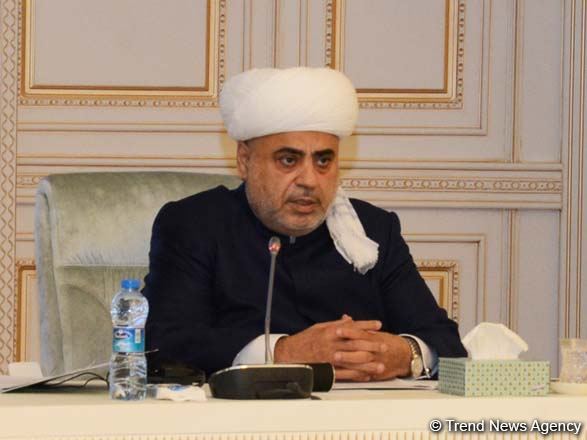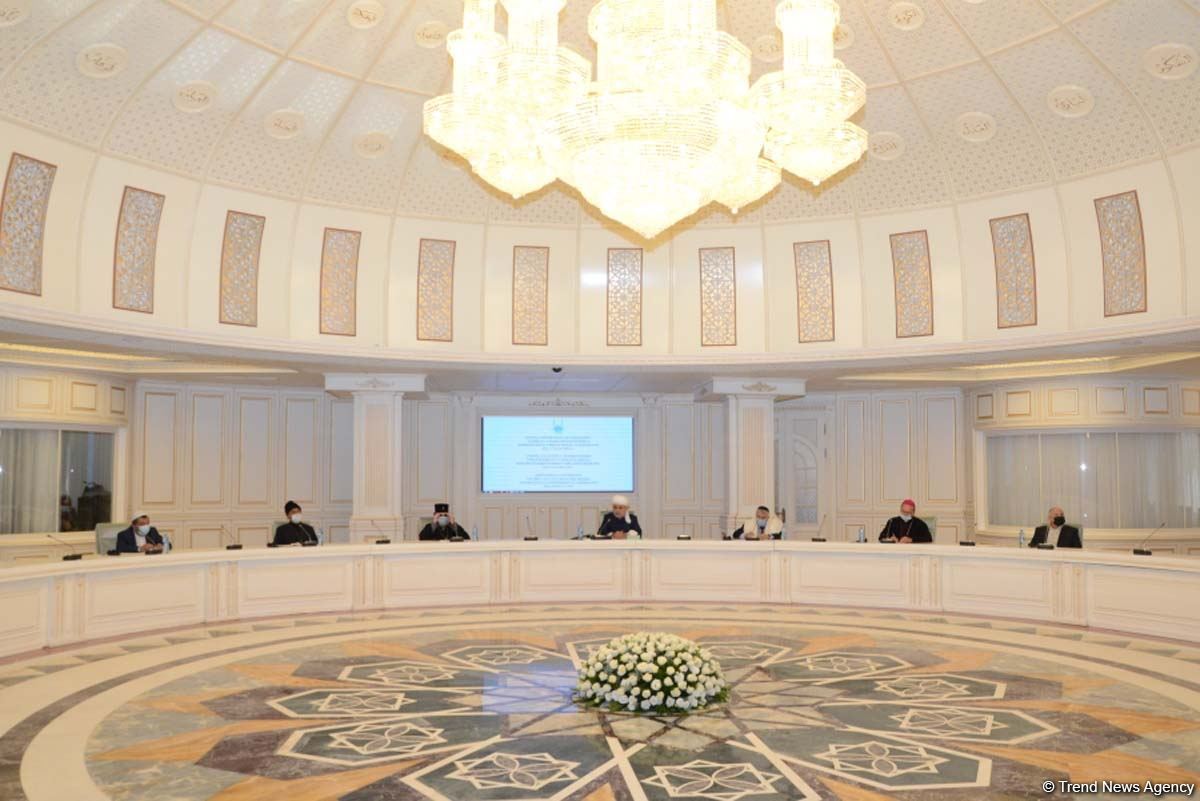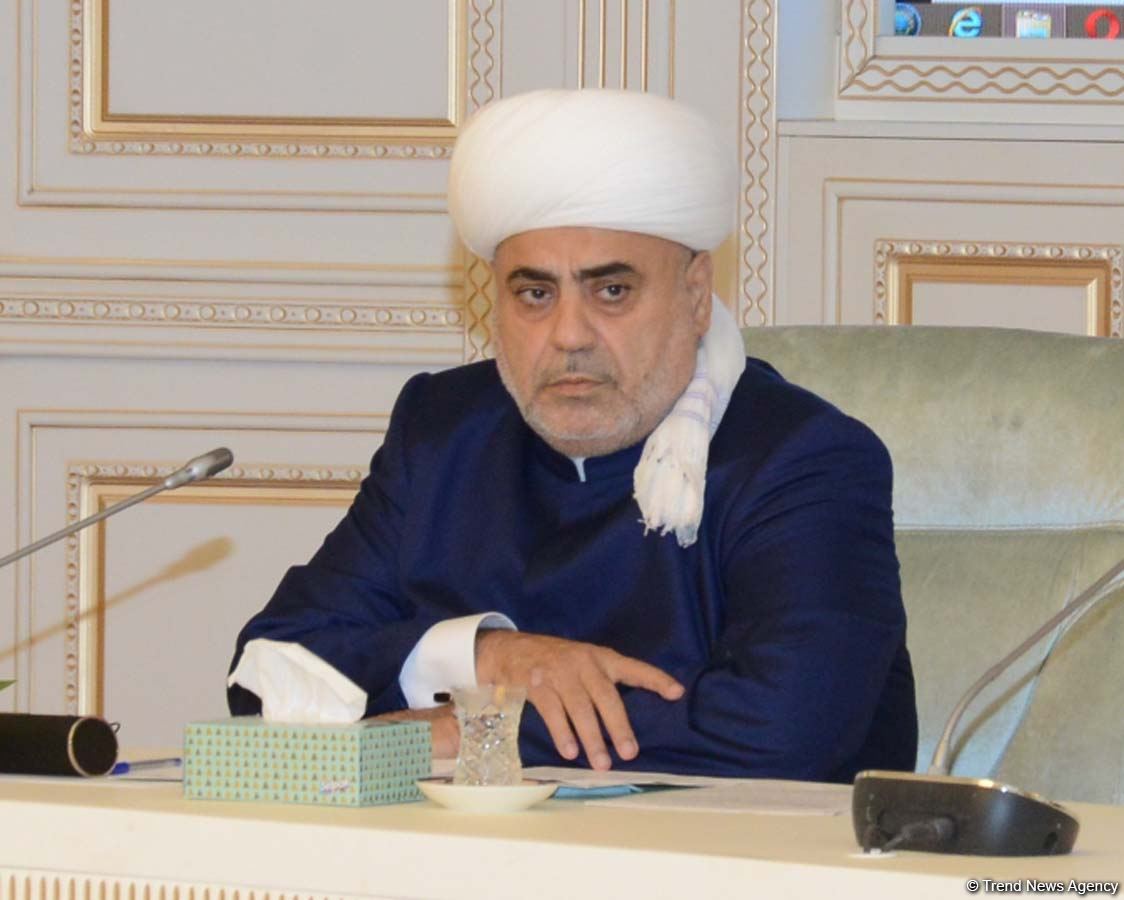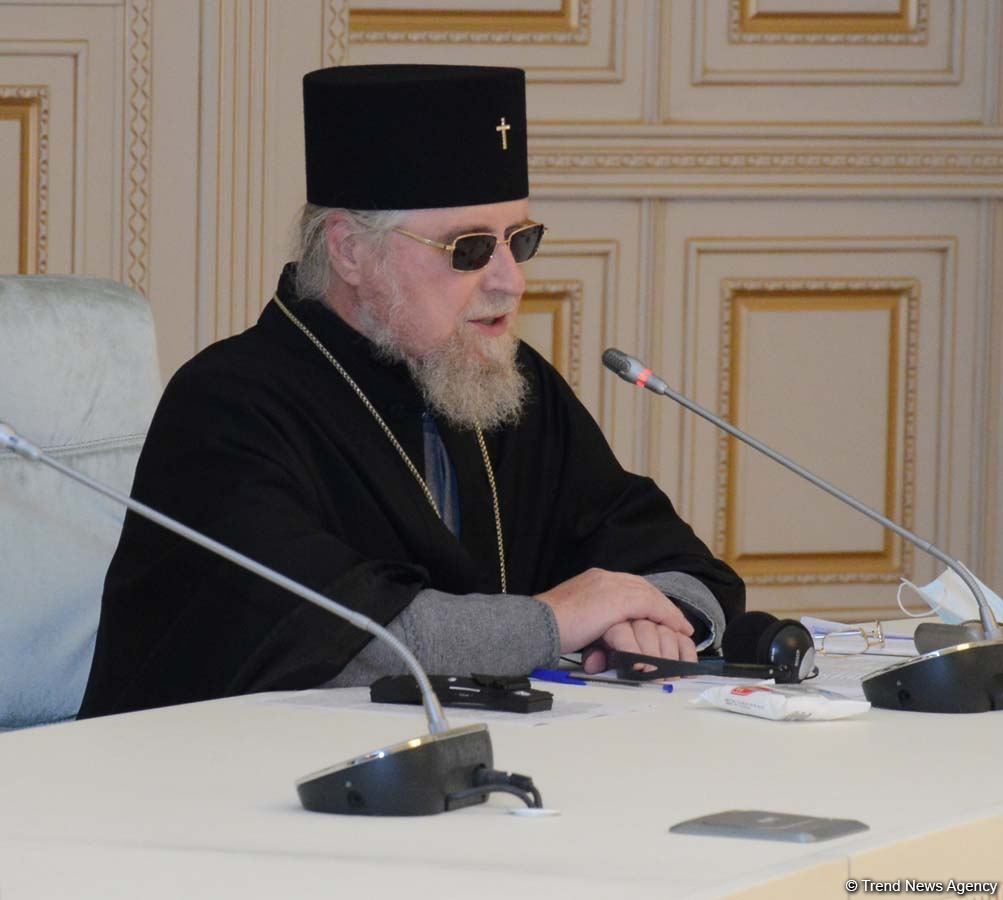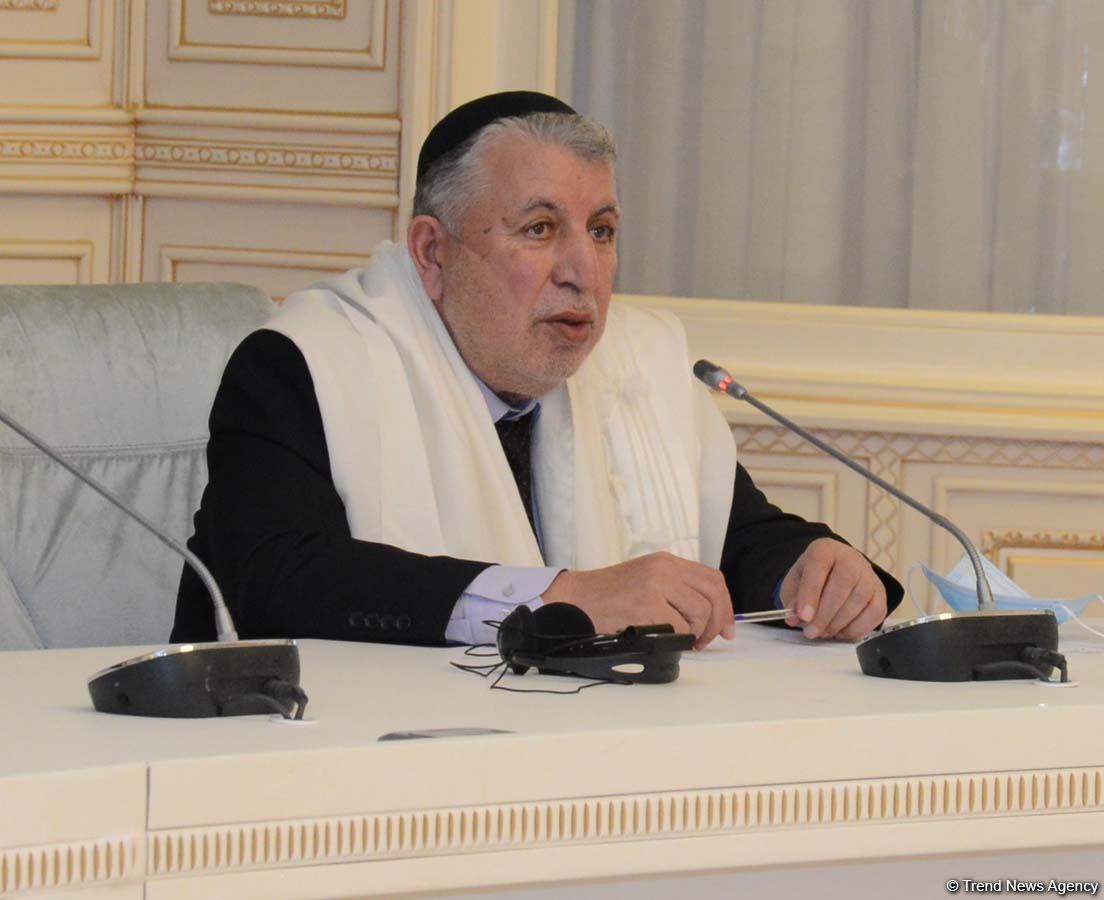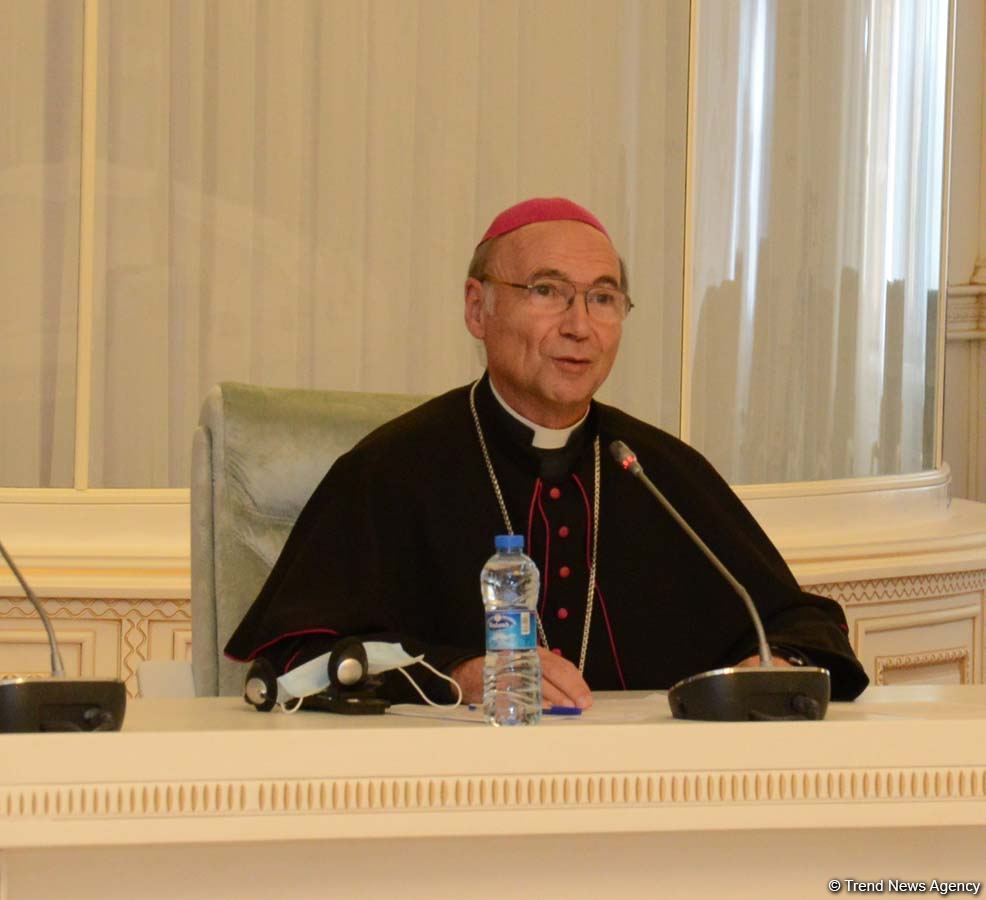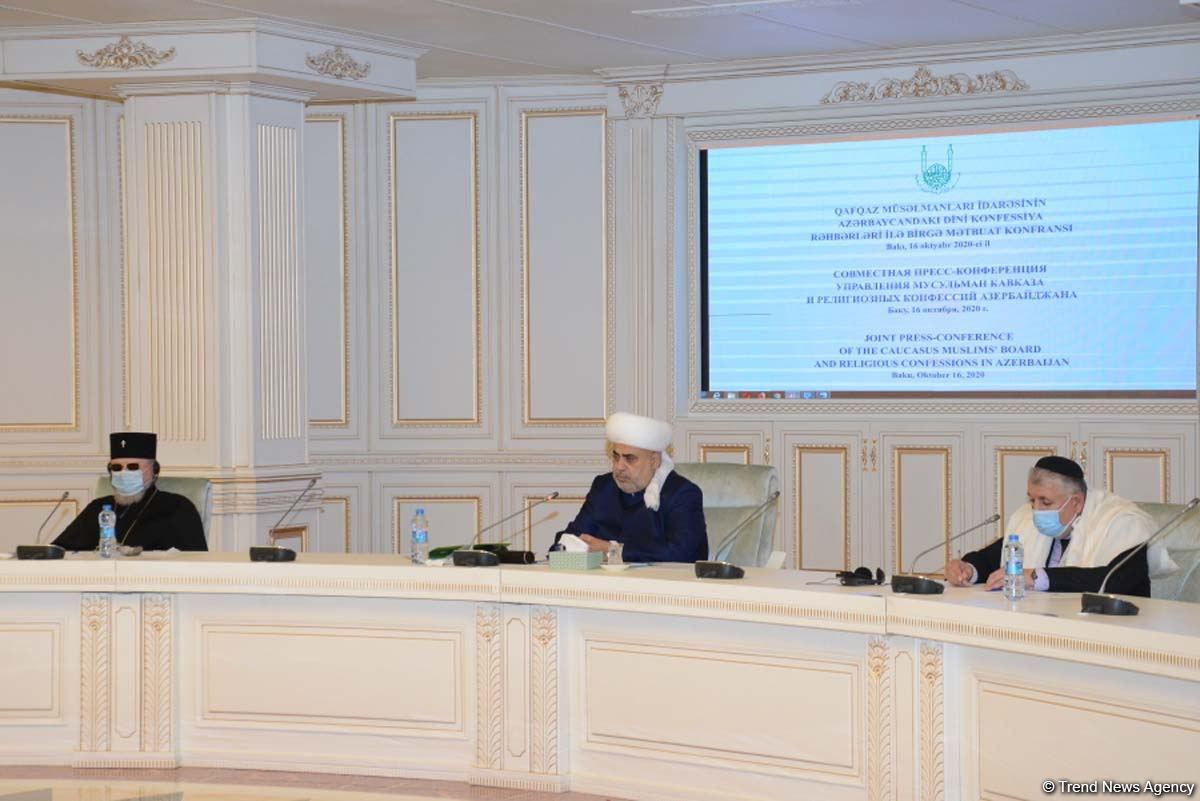BAKU, Azerbaijan, Oct. 16
Trend:
The Caucasian Muslims Office (CMO) and representatives of non-Muslim confessions in Azerbaijan issued a joint statement, Trend reports on Oct.16.
CMO and the representatives have sent numerous letters and appeal to the world community and religious leaders of the world, state bodies of foreign countries, and international organizations regarding the latest provocations undertaken by Armenia since July 2020 in the occupied territories of Azerbaijan and in the direction of the Azerbaijani-Armenian border, as well as war crimes against humanity committed by the occupation regime against the civilian population of Azerbaijan, cities, and villages located far from the scene of hostilities, as well as the consequences of these provocations.
The appeal was signed by the CMO Chairman Sheikh-ul-Islam Allahshukur Pashazade, Archbishop of Baku and Azerbaijan Alexander, head of the community of Mountain Jews in Azerbaijan Melikh Yevdayev, head of the community of European Jews in Baku Alexander Sharovsky and head of the Albano-Udi community Robert Mobili.
Armenian Armed Forces launched a large-scale military attack on positions of the Azerbaijani army on the front line, using large-caliber weapons, mortars, and artillery on Sept. 27.
Azerbaijan responded with a counter-offensive along the entire front. As a result of retaliation, Azerbaijani troops liberated a number of territories previously occupied by Armenia, as well as take important, strategic heights under control.
The fighting continued into October 2020, in the early days of which Armenia has launched missile attacks on Azerbaijani cities of Ganja, Mingachevir, Khizi as well as Absheron district.
Following almost two weeks of intensive military confrontations, Armenia and Azerbaijan, with Russia's mediation, have agreed on a temporary ceasefire for humanitarian purposes, for exchange of prisoners of war as well as bodies of the dead.
After the declaration of the ceasefire, on October 11, 2020, at about 2:00 (GMT+4) Armenian Armed Forces fired missiles at multi-apartment residential buildings in the central part of Ganja, the second largest city of Azerbaijan, located outside the frontline zone. As a result, 10 civilians were killed, 35 injured, as well as more than 10 multi-story buildings and over 100 different objects, were damaged.
The conflict between the two South Caucasus countries began in 1988 when Armenia made territorial claims against Azerbaijan. As a result of the ensuing war, the Armenian Armed Forces occupied 20 percent of Azerbaijan, including the Nagorno-Karabakh region and seven surrounding districts.
The 1994 ceasefire agreement was followed by peace negotiations. Armenia has not yet implemented four UN Security Council resolutions on the withdrawal of its armed forces from Nagorno Karabakh and the surrounding districts.

